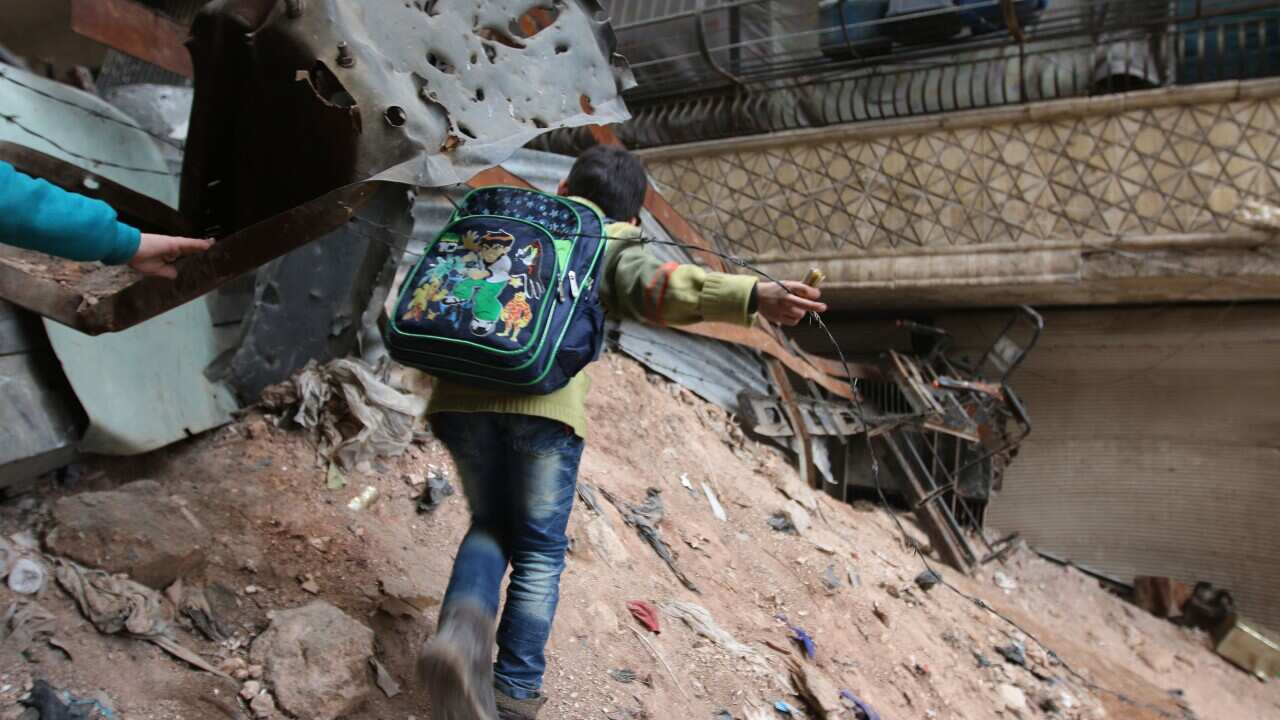The United Nations has called for an urgent ceasefire in the divided Syrian city of Aleppo, where it said two million people lacked access to clean running water, with children most at risk of disease.
Access is needed to deliver food and medical supplies and for technicians to repair electricity networks that drive water pumping stations, which were heavily damaged in attacks on civilian infrastructure last week.
"The UN is extremely concerned that the consequences will be dire for millions of civilians if the electricity and water networks are not immediately repaired," it said in a statement.
The statement was signed by Yacoub El Hillo, UN Resident and Humanitarian Coordinator for Syria, and Kevin Kennedy, UN regional humanitarian coordinator for the Syria crisis.
Related reading

Both sides brace for crucial battle for Syria's Aleppo
An estimated 250,000-275,000 people are trapped in eastern Aleppo following the closure of Castello road last month, the last remaining access route to the opposition-held part of the city, it said.
Insurgents effectively broke a month-long government siege of eastern Aleppo on Saturday. Their advance severed the primary government supply corridor running into the city from the south and raised the prospect that government-held western Aleppo might in turn become besieged by the insurgents.
This brought the total number of civilians in the city under "de facto fear of besiegement to over two million", the UN said.
UN Special Envoy for Syria Staffan de Mistura and UN Emergency Relief Coordinator Stephen O'Brien are to brief the Security Council on the deteriorating situation in Aleppo on Tuesday.
Young children are especially vulnerable to diarrhoea and other water-borne diseases from a heatwave and drinking dirty water, the UN Children's Fund (UNICEF) said.
"In the eastern parts of Aleppo up to 300,000 people - over a third of them are children - are relying on water from wells which are potentially contaminated by faecal matter and unsafe to drink," UNICEF spokesman Christophe Boulierac told a briefing.
UNICEF and other aid agencies are bringing emergency drinking water by truck to an estimated 325,000 people in western Aleppo per day, he said.
But Aleppo's sick and wounded lack access to health care.
Related reading

Syrian rebels break through Aleppo siege
Share

